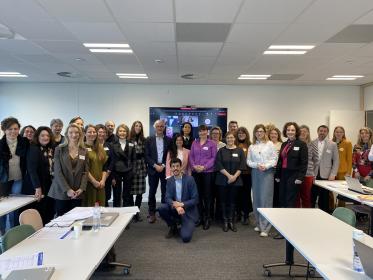EURATEX: Launch of educational project AEQUALIS-4-TCLF
In the context of the EU Pact for Skills, EURATEX launches an EU co-funded project under ERASMUS+ Programme to support the up-skilling and reskilling in the textile, clothing, leather and footwear (TCLF) sectors. The new project, AEQUALIS-4-TCLF, brings together 19 partners mainly from Eastern and Northern Europe1 who will work together in the coming 4 years to give a boost to upskilling and reskilling of workers in the TCLF industry.
Following the blueprint project SMART4TCLF and complementary to the METASKILLS4TCLF project, AEQUALIS4TCLF prioritizes creating strong links with regional and local entities to boost skills initiatives and establishing an EU-wide Network of TCLF vocational education and training (VET) and higher education (HE) providers. Based on the results from the skills gap analysis, AEQUALIS4TCLF will develop new national skills strategies in seven countries to address specific regional needs, setting a clear path for workforce development with special attention to addressing discrimination and promote diversity in the TCLF industries.
1 List of Netherlands, Czechia, Lithuania, Finland, Croatia, Slovenia, Serbia
EURATEX










